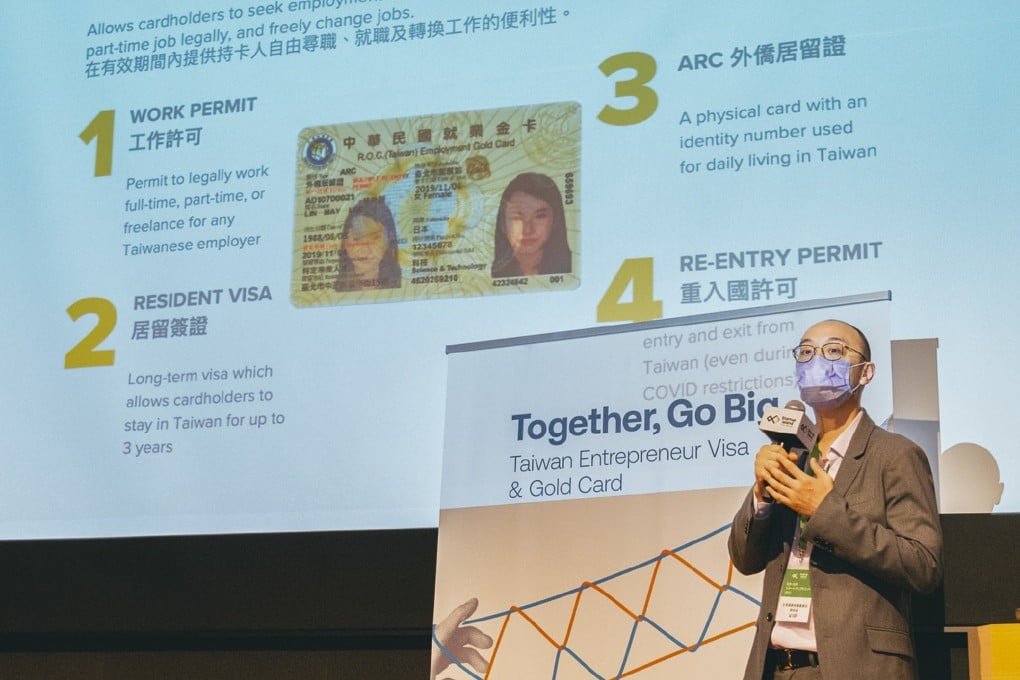Taiwan easing visa rules amid ‘intensifying’ talent war with mainland China, Hong Kong
- Taipei is discussing relaxing rules for foreign professionals under its Taiwan Employment Gold Card with its population set to start declining in 2031
- Hong Kong Chief Executive John Lee Ka-chiu stepped up the fight for overseas talent in Wednesday’s policy address, including extending employment visas to three years

Taiwan is making moves to relax visa and residency rules for foreign professionals as the industry-reliant island races to ensure a flow of talent before its population falls, according to the director of the project office in charge of the scheme.
Four government agencies that vet applications for the Taiwan Employment Gold Card are discussing admitting professionals from new fields and making it easier for arrivals to stay longer, director Jonathan Liao told the Post on Tuesday.
Taiwan’s population of nearly 24 million is expected to start declining in 2031 due to a low birth rate caused by rising childcare costs and other socio-economic factors.
I think there’s always a balancing act. They want to make it attractive, but not just open the flood gates
That threatens the productivity of the US$759 billion economy that relies on the latest talent to produce consumer electronics, machinery and other manufactured goods for global export.
“Moving forward, they’re still looking at all the areas where restrictions can be relaxed in a sense, looking at the criteria in terms of which ones are too strict,” Liao said, referring to Taiwan’s policy-setting ministries.